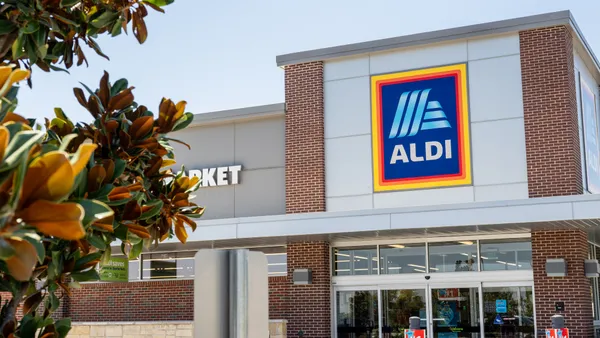Dive Brief:
- Hungryroot, an online grocer that uses artificial intelligence to build shopping carts for customers, has raised $40 million in a Series C funding round, according to a company press release. The funding round was led by L Catterton, which has also invested in online retailer Public Goods.
- Hungryroot will use the funding to “substantially” increase its grocery offerings and recipes, invest in automation, hire more employees and boost marketing efforts, among other priorities.
- The company said it has been profitable since early 2020 and is set to bring in $175 million in revenue this year and $300 million in 2022.
Dive Insight:
Similar to other online grocery startups, Hungryroot is benefitting from a rush of capital into the space on the heels of a pandemic-era boom.
The company differentiates itself from competitors with what it calls a “personalized grocery service.” Customers fill out a questionnaire when they sign up, and Hungryroot then uses machine learning and predictive modeling technologies to build shopping carts for them. It also offers recipes, meal planning and nutritional support.
The model is similar to that of meal kit companies. Shoppers get weekly product shipments. Items are automatically loaded to their carts, but customers can add or delete selections, cancel a week’s delivery and customize their shipping days.
As millions of shoppers have made a regular habit of shopping for groceries online, Hungryroot is betting it can appeal to those seeking nutritional guidance and time savings. It offers more than 3,000 recipes organized by dietary preferences. In a statement, founder and CEO Ben McKean said the service “reduces the average time consumers spend grocery shopping from two to three hours a week, to just two to three minutes.”
Prior to Friday’s announcement, Hungryroot had raised $35 million since its founding in 2015. With its latest funding round, it's now valued at $750 million, Bloomberg reported. The company said average customer spending on its platform is 64% higher in their first five months than with other grocery delivery services.
Pure play online grocers like Good Eggs, Weee and Imperfect Foods have all announced large funding rounds in recent months as they seek to siphon off shoppers from brick-and-mortar competitors. In March, Instacart announced that its valuation had more than doubled to $39 billion.










